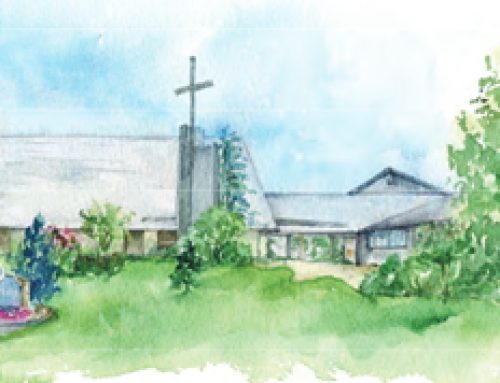FROM THE PASTOR’S DESK
Dear Parishioners,
I do not usually refer to Greek philosophy in my homilies. But that does not mean that the great ideas of minds such as Plato or Aristotle are irrelevant to the gospel. In fact, the teachings of these founders of Western Civilization have been used by the Catholic Church throughout the centuries to shape many of the theological beliefs that we find in the catechism. Their beliefs have also deeply influenced the thinking of saints such as Saints Augustine and Thomas Aquinas. Moreover, in today’s gospel Jesus is arguing with the Sadducees over two questions, which are central to Greek philosophy: Who Is God? And what happens after death? Against the position of the Sadducees, Jesus argues that after death there is a resurrection from the dead. How does he argue this? From the scriptures. He says that at the burning bush, God revealed to Moses that God was the God of Abraham, Isaac, and Jacob. All these ancestors were dead. But if God was still their God, they must, in some sense, still be alive. Because God is not God of the dead but God of the living.
Now I know this argumentation by Jesus is far from clear, but its conclusion is obvious. Our God is not God of the dead but God of the living. We find God, not in death, but in life. Conversely whenever we encounter life, we also encounter God’s presence. It is in life that we find the reflection of God. Therefore, life is a portal, a threshold to God.
But where in life do we find God? That is a deeper question. Here is where the Greek philosophers become useful. They thought extensively about such questions. There was a consensus in Greek philosophy that there were three places in life where God was most clearly reflected: in that which was good, in that which was true, and in that which was beautiful. Greek philosophy believed that whenever you encountered goodness in life, whether that was moral goodness or human goodness, goodness reflected God. Whenever you encountered truth in life, whether that truth was correctness or responsibility or honesty, in truth God was present. Whenever you encountered beauty, beauty you could see or hear or touch, beauty reflected God.
Now I think we regularly associate God with goodness and truth, but how often do we associate God with beauty? This insight is the new learning which results from my convoluted discourse about Greek Philosophy and the gospel. Our God is a God of life. And one of the places in life where God can be encountered is in that which is beautiful. Beautiful things convey to us the presence and the power of God. It is important that we see beauty in that way.
So here is my practical suggestion for the week, be attentive to the beauty in your life. Be attentive this week to the beautiful things you experience and do so with the religious sense that in that beauty you encounter the living God. If you by chance this week were to see one of our beautiful fall sunsets, do not simply let its beauty enter your eye. Pause and let it touch your heart. Then say to yourself, “God is near.” If you stop in to check on your four-year-old son as he sleeps, pause long enough to see in the beauty of his innocence the truth that God is present. If you see two teen-agers walking hand-in-hand in the mall, so connected and so unaware of what yet still lies ahead, see in the beauty of their relationship the truth that God is still with us. When you come to your wits end, when you simply need a break from all your responsibilities, take a moment and walk in the park. Let the beauty that surrounds you touch you. Or listen to a favorite piece of music and sense in its beauty the love and power of God.
Use such moments of beauty as a prayer, as a prayer which says: Of all the things I experience today, let me not miss this moment. For in the beauty of this moment I experience you, Lord. I can touch your love and your strength. In this beauty I can know that you are my God—not God of the dead, but God of the living.
Peace,
Fr. Monteleone
To read complete bulletin click here



